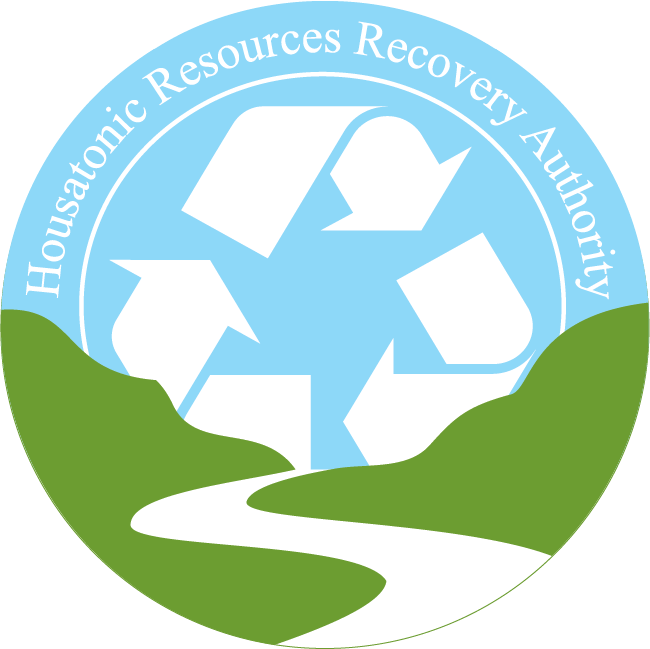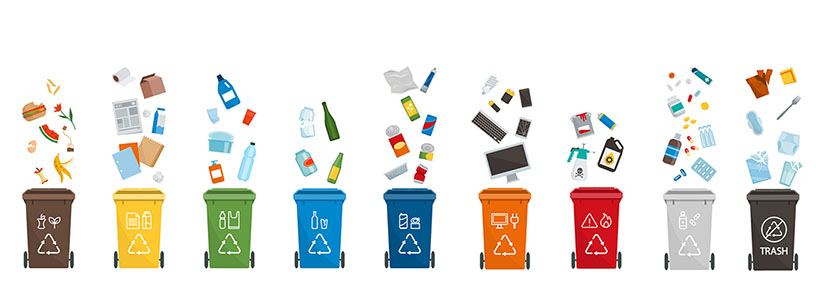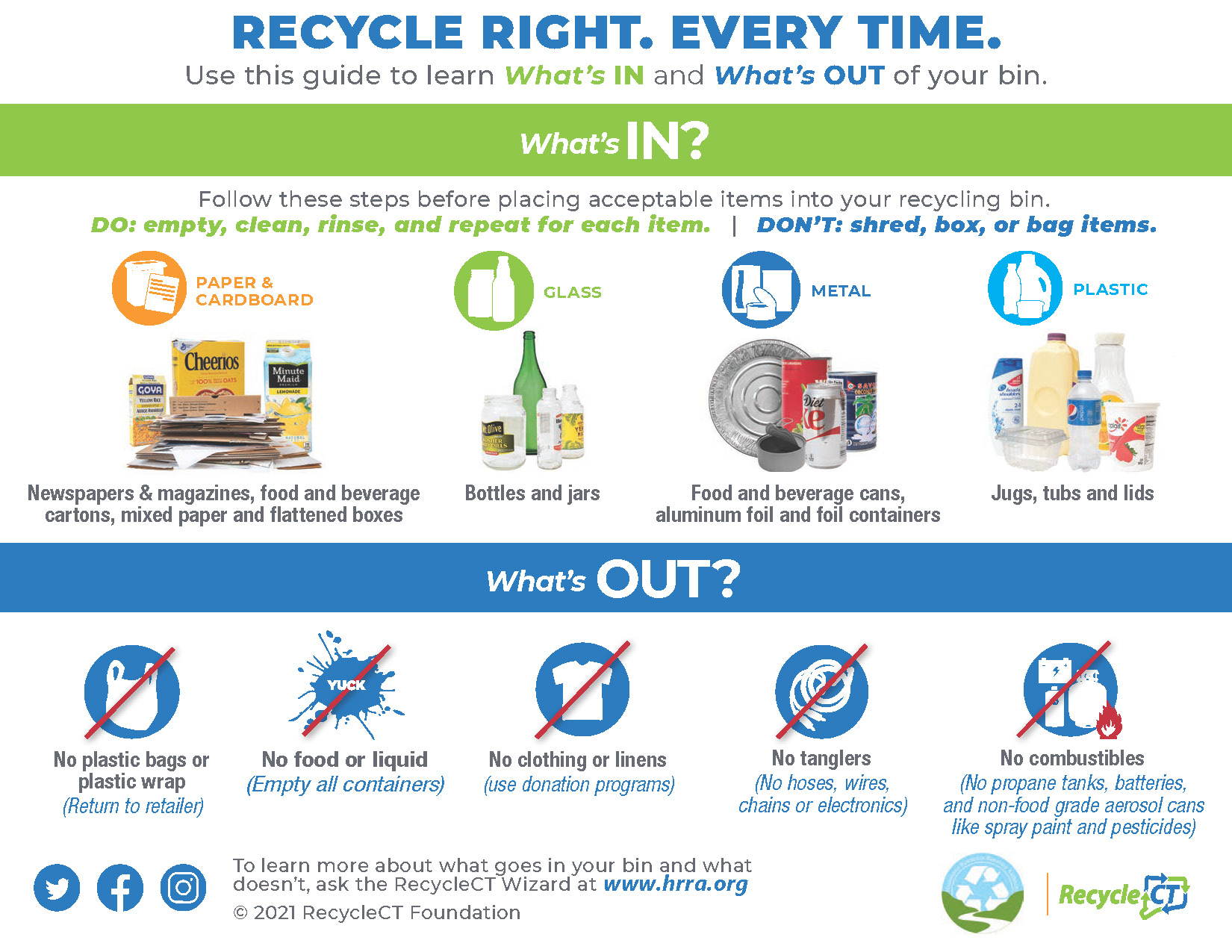Campaign signs are a recycling challenge because they’re made from multiple materials, such as paper, plastic and metal. Disposing of them requires taking them apart and disposing of each portion based on its material.
For towns within the HRRA region (Bethel, Bridgewater, Brookfield, Danbury, Kent, New Fairfield, New Milford, Newtown, Redding, Ridgefield, Roxbury, Sherman, Weston and Wilton) Here is your guide.
Here’s what you can do:
1.) Break down the sign by detaching the metal wire stand from the sign itself. The metal wire is made of steel. Steel wire CANNOT be recycled with your curbside recycling but it CAN be taken to your local recycling center and recycled with scrap metal.
2.) If the sign is sturdy, corrugated plastic, that means it cannot be recycled and goes in the trash. WHY? Because for something to be recyclable, it must have someone willing to purchase it and make it into something new. The Material Recovery Facility (MRF) where HRRA recyclables go, does not accept them.
3.) If the sign is a very thin, flexible plastic, that means it’s made from film. This also cannot be recycled curbside, HOWEVER, it CAN be recycled with plastic bags and film at a collection site, either “return to retail” or your local recycling center that collects plastic bags and film.
Before tossing your campaign sign, consider saving it for future use. You could attach a new message to the board and use it to promote a special event. A local school or nonprofit organization may be able to use the sign, too. If you don’t want to save the entire sign, you may be able to reuse the wire stand for future signs.


 Click
Click